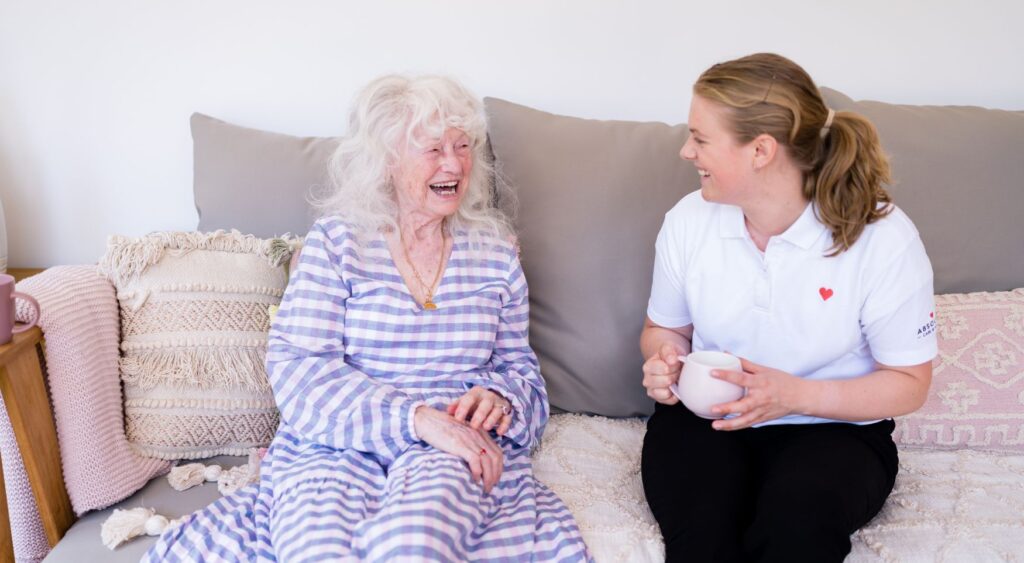Caring for a loved one is an incredibly rewarding experience. It brings family caregivers closer to their loved ones and provides certainty that they are well taken care of, yet it can be quite the draining task to carry out on a daily basis without any breaks.
You see, family caregivers have their own life to live, too. Family / children responsibilities, career duty and progression, social interactions and family vacations etc. are just some of the things they have to juggle with the desire to provide the best care for their loved ones.
As a result, many neglected their own needs and wellbeing and this could lead to physical, emotional and mental drain easily in the long run.
This is why respite care serves such an important resource for many families.
What is Respite Care?
Respite care is short-term care that provides temporary relief for family caregivers. It is where professional caregivers come in to handle the caregiving whenever need be so that family caregivers can take a break to maintain their own wellbeing.
In other words, family caregivers can supplement their full-time care with the help of professional caregivers at times of need without having to commit to a fixed or long-term engagement. From a few hours occasionally to a regular day a week or fortnight or even a longer period to cover holidays and time away, you get to decide it all.
Benefits of Respite Care for Family Caregivers
Aside from the most obvious that is giving family caregivers the opportunity to take breaks, here’s what respite care offers:
Reduce Stress for Better Health – Physically and Emotionally
Oftentimes, family caregivers are providing care to a loved one who is in need of full-time care. It can be an elderly, ill or family member with a disability.
This can be rather stressful and straining when carried out on a day-to-day basis. Such high levels of stress will render anyone less resilient over time and it is therefore not uncommon for family members to find themselves emotionally and physically burned out from the many responsibilities they carry.
Yes, physically too. When family caregivers aren’t fully equipped—whether mentally, emotionally, or physically—they can face significant health challenges. As time goes on, and they continue in their caregiving role, they might experience both mental and physical wear and tear. It’s essential to remember that family caregivers, often overlooked, need our support and understanding. If one does not attend to it, one may find themselves physical unable to care for their family member one day.
Utilizing respite care allows them to take a break and focus on themselves. Be it going for a vacation or simply just resting at home, they get to do things that help them relax and recharged. Even just a couple of hours of respite care services weekly will allow a family member the luxury of much-needed self-care, as well as sufficient rest and recuperation.
Maintain A Balanced Life
On the same note, family members get to live their own life fruitfully and efficiently too. The extra time gained from respite care allows them to maintain a heathy social life be it with friends or family. Socializing helps in maintaining one’s mental and emotional health so it is vital that a person (especially those providing care) maintains a healthy balance in that aspect, and respite care makes that possible.
Likewise with work and family relationships. Family caregivers get to focus 100% on their day job and own family instead of always worrying about their sick family member at the back of their mind. This is because they know that they are in the care of capable and professional hands, and such assurance is invaluable.
Better Quality of Care
When all of the above are achieved, family members are able to return to their caregiving role refreshed and rejuvenated. This will in turn benefit the family member receiving care as the dedication and focus of care they will be getting will be of a higher and better quality.
An Affordable Route to Professional Caregiving
Last but not least, respite care is an alternative way for families to obtain professional caregiving services without committing to the full-time caregiving cost that comes from long-term engagement. Such can prove to be challenging for financially less-able families so respite care is a much-welcomed alternative for many.
One can engage professional caregiving only when they require it – whenever that is. The flexibility also allows family members to continue providing care personally as they wish, and only engage help when required. As one would know, some families do prefer to take care of their beloved one themselves instead of seeking help externally.
Conclusion
As you can see, respite care does wonders to both family caregivers and the family member receiving care. It is an invaluable resource for family caregivers seeking for much-needed support and relief when needed, and it makes the whole caregiving journey a less isolating and straining experience.
Want to find out more on how you can utilize respite care? Get in touch today and we will do our best to assist.



